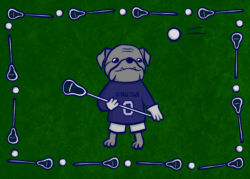Fantasy football was born over 20 years ago as a pastime accessible to the public in major regional newspapers. With the rise of the Internet, fantasy football has become one of sports fans’ favorite distractions. Some of the biggest sports websites, which have their own leagues, have even hired fantasy football “analysts.” Yes, there are some people earning six figures to analyze a fake football game. Fantasy is one of NFL.com’s main focuses, and millions of people participate in this game every year.
All this makes it hard for me to admit that this is the first year I have ever played fantasy football. The appeal is obvious. It has only been two weeks, and I have already felt intense excitement and disappointment over a fantasy game. But fantasy football has also changed how I watch the NFL and root for teams.
Before playing fantasy football, I would watch my favorite team’s games, and maybe catch the Monday night games when they were a good matchup. But I only truly cared about the outcome in one game a week. It was simple—I was only loyal to one team. In the pre-fantasy football era, the average fan’s cheering habits were the same.
But with fantasy, everything has changed. Suddenly, it is easy for me to care more about my fantasy team than the team I’ve supported my whole life, especially if there is money on the line.
This past Sunday for example, my favorite team, the Miami Dolphins, beat the Vikings, in a great game, a huge victory for the Miami. In the pre-fantasy era, I would’ve been ecstatic. The win would’ve kept me happy until Tuesday. But while in reality my team had scored a victory, my fantasy world was full of heartbreak.
I trailed my opponent going into the Monday game and would need a big game from Saints running back Reggie Bush to bounce back. He had a great first three quarters, and it looked as though it’d be enough to win. I was losing by .1 points—yes one-tenth of a point—when Bush broke his leg and left the game. All he needed to do was run two yards. From my couch, I was begging Saints coach Sean Payton to put Reggie back in for just one more play—I didn’t care if his leg got torn off, I needed to win my silly game. Of course, he didn’t do that, and the results depressed me more than my impending political theory paper.
Although fantasy football makes more football games interesting to watch, it causes some issues of confusion and disloyalty. What do you do if you’re in the playoffs and your starting fantasy QB is playing against your favorite team? Can you root for Tom Brady if he is on your fantasy team, even if you’re from New York?
I did. On Sunday, I—a New Yorker—was rooting for Tom Brady to have a good game. In the past, I would have been hard-pressed to think of anything that would make me root for a player or team from Boston, but here I was in what seemed like an alternate universe, cheering for another Brady-Moss touchdown.
Fantasy football has definitely changed the way we watch sports and I’m still trying to figure out if it’s for the better or not. One thing is for sure—fantasy makes you do crazy things.





